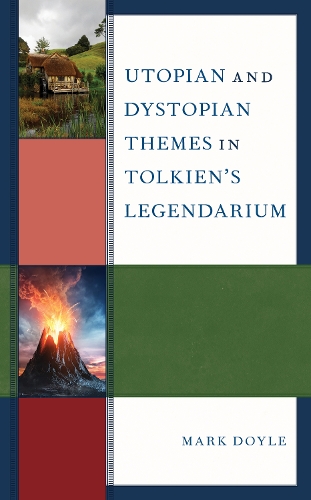
Utopian and Dystopian Themes in Tolkiens Legendarium
(Hardback)
Publishing Details
Utopian and Dystopian Themes in Tolkiens Legendarium
By (Author) Mark Doyle
Bloomsbury Publishing PLC
Lexington Books
8th November 2019
United States
Classifications
Professional and Scholarly
Non Fiction
828.91209
Physical Properties
Hardback
204
Width 159mm, Height 231mm, Spine 22mm
494g
Description
Utopia and Dystopia in Tolkiens Legendarium explores how Tolkiens works speak to many modern peoples utopian desires despite the overwhelming dominance of dystopian literature in the twentieth and twenty-first centuries. It also examines how Tolkiens malevolent societies in his legendarium have the unique ability to capture the fears and doubts that many people sense about the trajectory of modern society. Tolkiens works do this by creating utopian and dystopian longing while also rejecting the stilted conventions of most literary utopias and dystopias. Utopia and Dystopia in Tolkiens Legendarium traces these utopian and dystopian motifs through a variety of Tolkiens works including The Hobbit, The Lord of the Rings, The Silmarillion, Book of Lost Tales, Leaf by Niggle, and some of his early poetry. The book analyzes Tolkiens ideal and evil societies from a variety of angles: political and literary theory, the sources of Tolkiens narratives, the influence of environmentalism and Catholic social doctrine, Tolkiens theories about and use of myth, and finally the relationship between Tolkiens politics and his theories of leadership. The books epilogue looks at Tolkiens works compared to popular culture adaptations of his legendarium.
Reviews
Like his religious thought, Tolkiens sophisticated political ideas on the organization and governance of society are nuanced, rarely plainly stated, and best discovered through a close reading of his fictional texts. In this book, Mark Doyle demonstrates that while Tolkien was not writing explicitly in the utopian mode, many societies in Middle-earth and his other writings may be usefully read as utopian or dystopian, complicated at all times by the frailties and free will of the individuals constituting them. Utopias and Dystopias traces influences on Tolkiens political systems primarily from medieval and Victorian-medievalist sources, pre- and post-WWI modernity, environmental stewardship, his Catholic faith, and his strong sense of the fallenness of man and the dangerous temptations of the desire for power. -- Janet Brennan Croft, Rutgers University, editor of Mythlore
Author Bio
Mark G. Doyle is professor of English and chair of the Humanities Department at Marion Military Institute.
